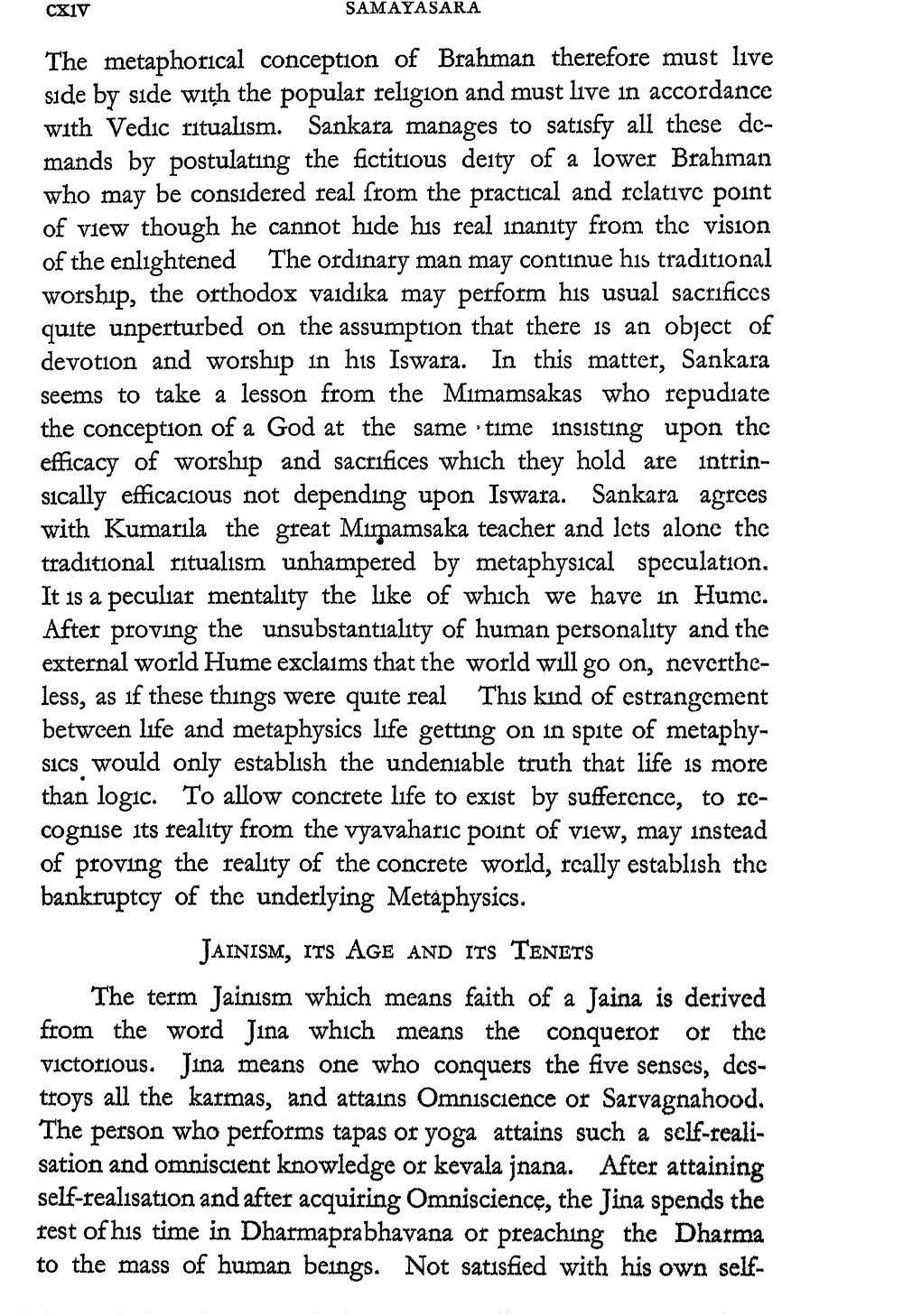________________
CXIV
SAMAYASARA
The metaphorical conception of Brahman therefore must live side by side with the popular religion and must live in accordance with Vedic ritualism. Sankara manages to satisfy all these dcmands by postulating the fictitious deity of a lower Brahman who may be considered real from the practical and relative point of view though he cannot hide his real inanity from the vision of the enlightened The ordinary man may continue his traditional worship, the orthodox vaidika may perform his usual sacrifices quite unperturbed on the assumption that there is an object of devotion and worship in his Iswara. In this matter, Sankara seems to take a lesson from the Mimamsakas who repudiate the conception of a God at the same time insisting upon the efficacy of worship and sacrifices which they hold are intrinsically efficacious not depending upon Iswara. Sankara agrces with Kumarıla the great Mimamsaka teacher and lets alone the traditional ritualism unhampered by metaphysical speculation. It is a peculiar mentality the like of which we have in Humc. After proving the unsubstantiality of human personality and the external world Hume exclaims that the world will go on, nevertheless, as if these things were quite real This kind of estrangement between life and metaphysics life getting on in spite of metaphysics would only establish the undeniable truth that life is more than logic. To allow concrete life to exist by sufference, to recognise its reality from the vyavaharic point of view, may instead of proving the reality of the concrete world, really establish the bankruptcy of the underlying Metaphysics.
JAINISM, ITS AGE AND ITS TENETS The term Jainism which means faith of a Jaina is derived from the word Jina which means the conqueror of the victorious. Jina means one who conquers the five senses, destroys all the karmas, and attains Omniscience or Sarvagnahood. The person who performs tapas or yoga attains such a self-realisation and omniscient knowledge or kevala jnana. After attaining self-realisation and after acquiring Omniscience, the Jina spends the rest of his time in Dharmaprabhavana or preaching the Dharma to the mass of human beings. Not satisfied with his own self




